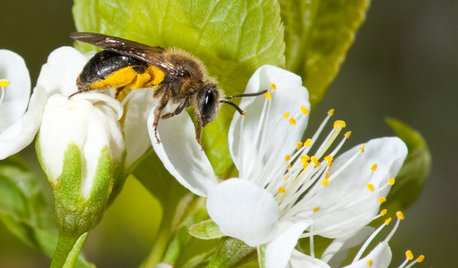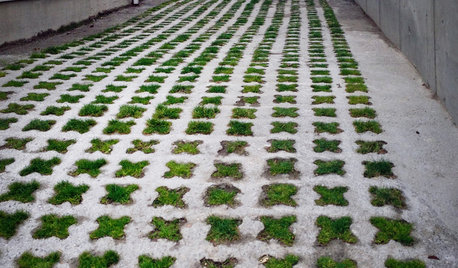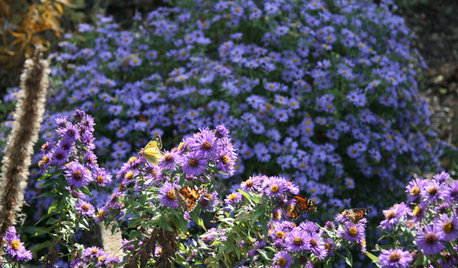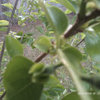How dangerous are pesticides?
alan haigh
12 years ago
Related Stories

PETSPet-Proofing Your Home: A Room-by-Room Guide
Not all pet dangers are obvious. Keep furry friends safe and sound by handling all of these potential hazards
Full Story
PETSGarden Alert: 22 Plants to Keep Away From Pets
Avoid potential danger by keeping dogs and cats away from these landscaping and houseplant favorites
Full Story
EARTH DAYThe Case for Losing the Traditional Lawn
Work less, help the environment and foster connections by just saying no to typical turf
Full Story
GARDENING GUIDESHow to Switch to an Organic Landscape Plan
Ditch the chemicals for a naturally beautiful lawn and garden, using living fertilizers and other nontoxic treatments
Full Story
GARDENING GUIDESInvite Mining Bees to Your Garden by Planting Their Favorite Plants
Look for mining bees (Andrena) pollinating woodland wildflowers in U.S. gardens this spring
Full Story
EARTH DAYHow to Build a Greener Driveway
Install a permeable driveway to keep pollutants out of water sources and groundwater levels balanced
Full Story
FLOWERS15 Native Flowers That Attract Butterflies
By picking plants from this list that are right for your location, you’ll get colorful blooms and support pretty pollinators
Full Story
LIFEHow to Keep Your Pets Safe During the Holidays
To avoid an unwanted trip to the vet, be aware of these holiday-related hazards for dogs and cats
Full Story
LANDSCAPE DESIGNGardening for Happy Kids
Foster creativity, self-esteem and more by designing your landscape with a sense of discovery
Full Story
GARDENING FOR BUTTERFLIESGardening for the Bees, and Why It’s a Good Thing
When you discover how hard bees work for our food supply, you may never garden without them in mind again
Full StorySponsored
Columbus Area's Luxury Design Build Firm | 17x Best of Houzz Winner!
More Discussions








ltilton
maryneedssleep
Related Professionals
Citrus Heights Landscape Architects & Landscape Designers · Forest Acres Landscape Architects & Landscape Designers · Saint Matthews Landscape Architects & Landscape Designers · Medford Landscape Contractors · Anderson Landscape Contractors · Azalea Park Landscape Contractors · Bloomington Landscape Contractors · Framingham Landscape Contractors · Hilton Head Island Landscape Contractors · Indianapolis Landscape Contractors · Las Vegas Landscape Contractors · Ocoee Landscape Contractors · Post Falls Landscape Contractors · Santa Maria Landscape Contractors · Weymouth Landscape Contractorsalan haighOriginal Author
theaceofspades
olpea
gonebananas_gw
Konrad___far_north
ganggreen
Scott F Smith
denninmi
alan haighOriginal Author
MrClint
kokopelli5a
myk1
trianglejohn
ravenh2001
alan haighOriginal Author
Konrad___far_north
alan haighOriginal Author
fruithack
myk1
alan haighOriginal Author